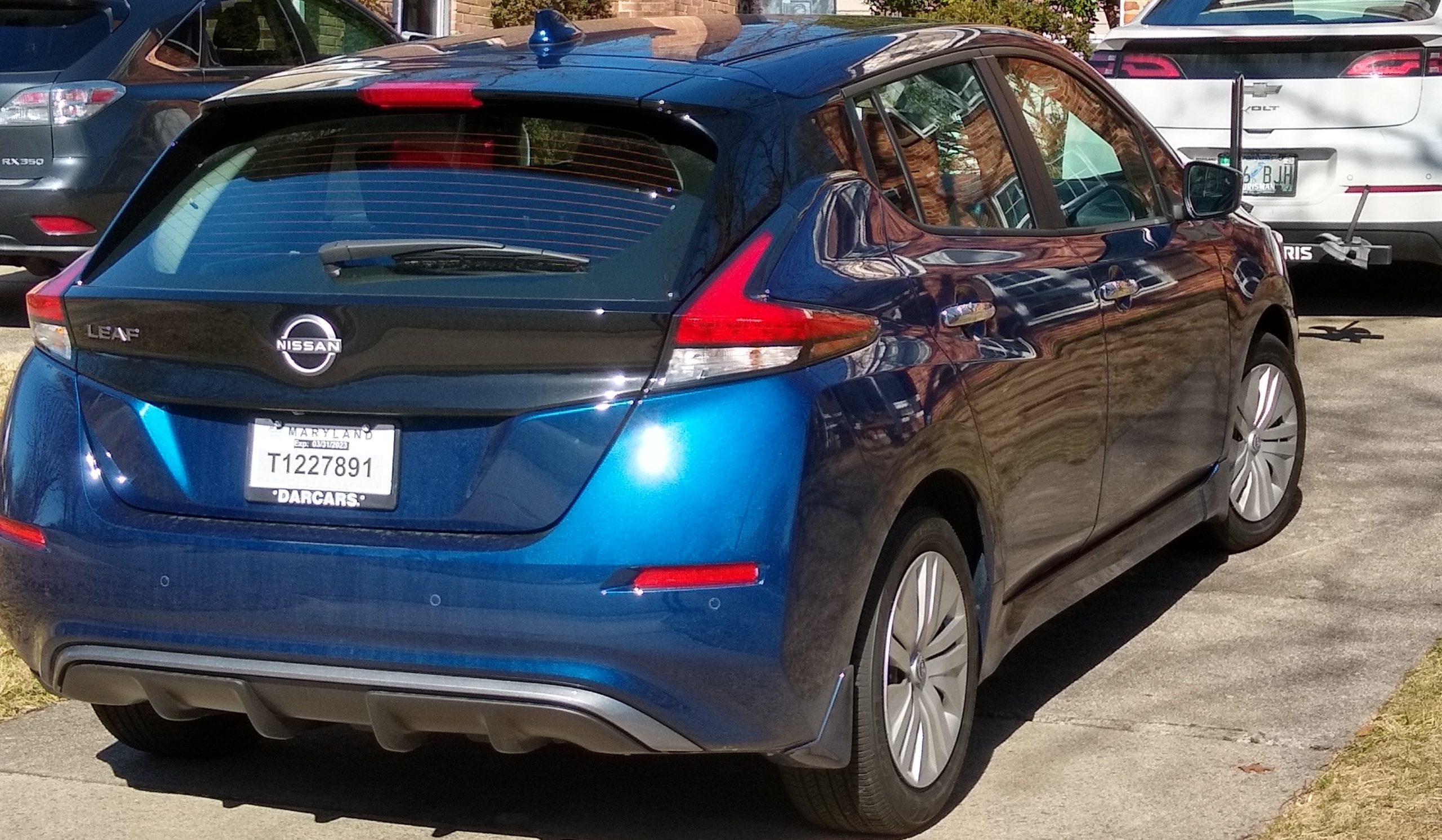
Belated Announcement
Going a Little Greener with a Leaf
I am happy to announce our purchase of a new all-electric car, the Nissan Leaf. The Leaf replaces our 2007 Honda Civic, and joins our other car, a 2013 Chevy Volt plug-in hybrid.
We bought the car in January. So far it has lived up to expectations – a small car with great visibility and the zippy acceleration that one expects from an electric car.
My wife handled the price negotiations. She made an offer that was several thousand below what they were asking. The salesperson looked grave and said he had talk to his manager, as expected. Then she was kicking herself when he came back and accepted the offer. “I knew I should have gone lower.” Prices are lower today, I believe, for anyone interested in going out and buying an electric car. We got ours for about $31k including all taxes and fees but also including trade-in on the old car. The car also qualifies for a tax credit of up to $7500.
The Leaf comes with either a 40 kWh (kilowatt hour) battery with a range of about 150 mi or a 60 kWh battery that goes about 210 mi. We got the smaller one. For one thing, that was all that was available that week. We could have waited, but I thought maybe the smaller one was better. While an electric car is far better for the environment than a gas-powered one, there is an environmental cost to making the battery, so there is a benefit to getting the smaller one if it gets you far enough.
One battery charge can get me to work and back twice – probably three times if I don’t mind sweating at the end. That’s much better than the Volt, which goes 40 miles electric on a nice spring day and 30 miles when it’s really cold. We can also get to Baltimore or Annapolis and back. If we need to go New Jersey or other longer rides, we’ll take the Volt, which we would probably do even with the bigger battery. The Leaf has a rapid mode that charges the battery to 80% in around 45 minutes, so we could do that to go further. Charging stations are becoming more common every day, but it may be a little while before I’m willing to rely on it.
If electricity is 15 cents a kWh and 40 kWh powers the car 150 miles, going 10,000 mi a year costs around $400 for electricity. This week’s price of gas is about $3.60/gallon, so 10,000 mi in a 40 mpg car like my Volt (in gas mode) or the old Civic costs $900. So the electric car saves about $500 in energy costs per year.
Speaking of electricity…
Solar Power Still Going Strong

In 2021 I wrote about our solar panels. Another couple of years later, and… still getting about 7000 kWh per year energy from them, about $1000 electricity savings a year plus about $300-400 SREC checks coming in the mail each year. So figuring $1300 a year, we are on track to make back the $11,000 installation bill in under 9 years – almost 4 years down, another 5 to go. Then another 16 years of electricity for free.
We did have one problem with the solar panels – in November 2022 we saw that the October bill showed almost no generation. It turned out that the inverter died. Since the panels were still under warranty, we had them fixed for free within a week.
Living a Greener Life
If you have a sunny roof, you’ll save money with solar panels. If you don’t have the cash to pay the upfront costs, there are several options to avoid fronting the money. Electric cars are not as clearly a financial win, but the fuel savings make it plausible that you will break even compared to a gas-powered car and may even save some money in the long run.
Aside from the dollars, electric cars and solar panels are two easy ways to shrink your carbon footprint and help give the Earth some breathing room before it hits even higher temperatures.